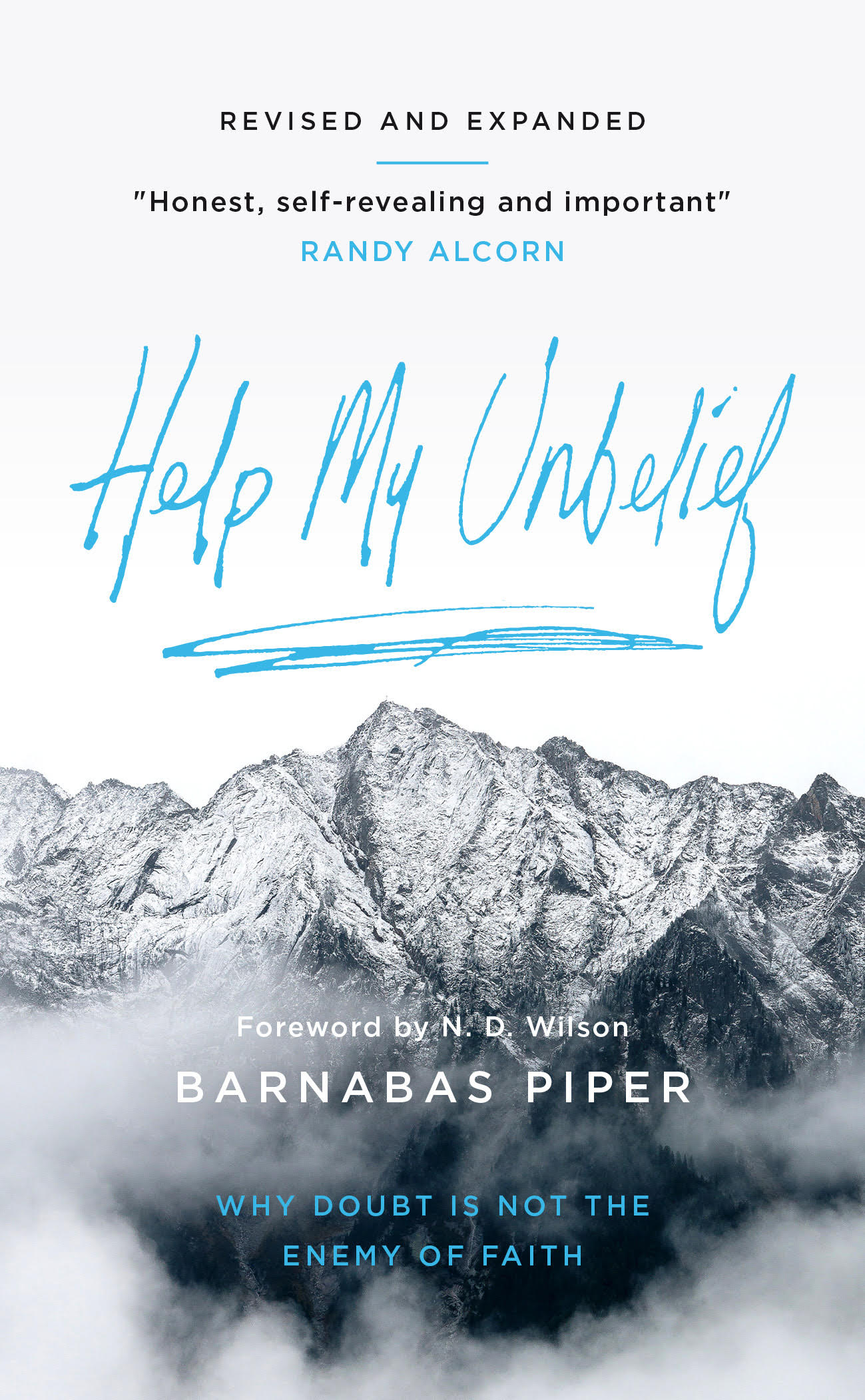How far can a five word prayer really take you? It seems like it might use up its meaning fairly quickly. Or maybe it will turn into a mantra and just be rotely repeated. We can get bored with whole books of the Bible, so what chance does a prayer like “I believe; help my unbelief” stand in staying pertinent, fresh, and applicable?
This is not like any other prayer, though. It is a paradigm as much as it is a request. It is a framework for faith and belief in the midst of, well, anything. And for that reason “I believe; help my unbelief” is always pertinent, fresh, and profoundly true.
We see in this story (Mark 9:14-29) an instance of when this prayer can be prayed, at wit’s end when all else has been tried and proved wanting and there are no more answers except Jesus. It is a prayer for desperate times when your faith is on the brink of failing. It is a prayer for exhausted times when you are not sure you can hold on to belief much longer. It is a prayer for those times of fog when you simply cannot see the truth of God’s word or sense his presence. It is a prayer for times of temptation when sin seems so appealing and you just aren’t sure it’s worth resisting.
And it is a prayer for when things are good and you are grateful because in those moments you should celebrate “I believe” and acknowledge that there is still unbelief in your heart. Especially because good times are when we are most prone not to rely on God. Remember, the prayer is a double confession, one part a proclamation of what we believe and the other an admission of where we have need.
Consider what you are saying when you pray these few words. The first two, “I believe,” are a statement to God that you do trust Him. You do trust His word. You do trust His character. You do believe he keeps His promises. You do believe He is who He says He is. To pray this you don’t have to believe all of this perfectly (in fact, you never will this side of heaven). You just need to believe it as well as you can in the moment. To pray this prayer at all is an act of belief because it shows you believe there is a God who hears you and just might act on your behalf. That is a seed of faith.
The last three words, “help my unbelief,” are a plea for help. None of us ever believes as we ought. And often we barely believe at all. We struggle to see the truth of God’s word or to trust that He will do what He says He will do. We struggle to understand what the Bible says and that can make it difficult to believe. We are tempted to believe lies and walk headlong into sin. We are tempted to just plain give up and walk away from Christianity all together. So we need the prayer “help my unbelief.” We need it today, tomorrow, the next day, and the day after that. We need it when we wake up, when we get coffee, when we meet a friend, and when we get home after work. We need it constantly because that is when we struggle with unbelief.
Earlier I called this prayer a paradigm or a framework of faith. Part of what that means is that it relieves the pressure of having all the answers. Often we feel like we must know what to think, how to think, or what to do in every situation. We feel we must be able to explain every mysterious thing about God or complex passage from scripture. Faith says that not only do we not have to do these things we are not able to. We can’t have all the answers because we are not God. So we have faith. And so we have this prayer. It is our answer when we face an unanswerable situation or question.
When we pray “I believe; help my unbelief” we are doing the most faithful thing a person can do. We are expressing the assurance and confidence we have in God–sometimes much, sometimes little–and we are confessing that we are limited, sinful, and need the help of Jesus. What else is there for a Christian? We believe, and we need Jesus. Constantly, in all situations and in every struggle. And so God gave us this prayer and showed us how it can be spoken to Jesus whenever and wherever we need.
 This is an excerpt from my small group study titled Help My Unbelief: Why Doubt is Not the Enemy of Faith. Learn more about the study, additional resources, and how you can use it with your group at lifeway.com/helpmyunbelief.
This is an excerpt from my small group study titled Help My Unbelief: Why Doubt is Not the Enemy of Faith. Learn more about the study, additional resources, and how you can use it with your group at lifeway.com/helpmyunbelief.
For more on the subject of faith and doubt check out my book Help My Unbelief: Why Doubt is Not the Enemy of Faith.
